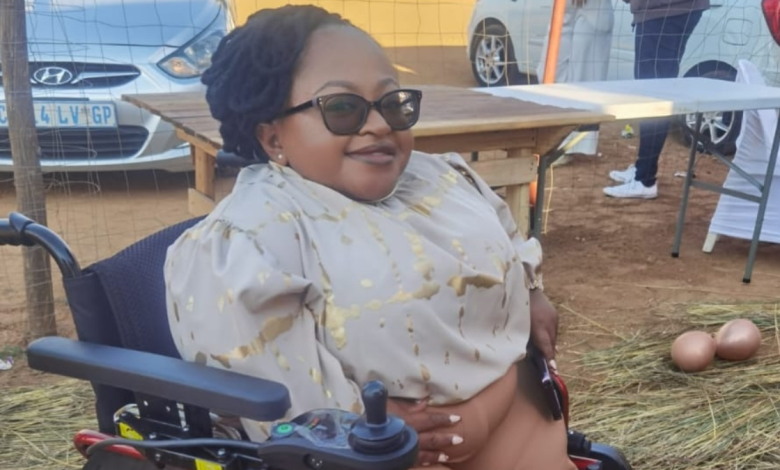Women’s Month: Lungi Mkwani’s Story Highlights Barriers for Women with Disabilities

As South Africa celebrates Women’s Month, it’s essential to recognise the achievements of women and address the barriers they still face. Lungi Mkwani, a 27-year-old from Kagiso, Gauteng, provides a powerful example of the challenges women with disabilities encounter. Lungi lives with osteogenesis imperfecta (brittle bones), which has made it difficult for her to find stable employment. Despite her qualifications and experience, she continues to face significant hurdles. Her story highlights the barriers that many women with disabilities face, especially in the workforce.
The Intersection of Gender and Disability
Women with disabilities often face two layers of discrimination: one based on their gender and the other on their disability. This combination of challenges makes it even harder for them to access education, healthcare, and employment opportunities. Statistics show that women with disabilities are less likely to find work or complete higher education than their non-disabled peers. They also face higher rates of poverty, which further marginalises them.
Lungi’s experience mirrors this reality. She holds a qualification in public relations (N4) and has work experience in business and office administration, yet she struggles to secure full-time employment. Employers have turned her down because of her disability, even though she has the necessary skills and qualifications. This is a common experience for many women with disabilities across South Africa.
Systemic Barriers in Employment
Women with disabilities face systemic barriers that make finding a job even harder. Many companies claim to support employees with disabilities but fail to implement inclusive hiring practices. Available jobs are often short-term contracts or internships, many of which have age restrictions that exclude older candidates, like Lungi, who is over 28 years old.
Workplaces often fail to accommodate people with disabilities. Lungi’s case illustrates this issue, as she’s frequently excluded from jobs due to inaccessible work environments. This lack of accommodation prevents women with disabilities from reaching their full potential in the workforce.
The Need for Policy Reform and Societal Change
Although South Africa has policies to protect the rights of people with disabilities, the enforcement of these policies is inconsistent. To truly support women with disabilities, the government must strengthen and enforce these laws. These policies should not only promote inclusive hiring but also ensure that women with disabilities have equal opportunities to participate in all aspects of society.
Moreover, society needs to shift its attitudes. Disability should not be seen as a barrier to success. Instead, people with disabilities need reasonable accommodations to thrive. Changing the perception that disabled individuals are less capable is essential for fostering a more inclusive society. When society embraces inclusion, women with disabilities will have the opportunities and respect they deserve.
Empowering Women with Disabilities
Organisations like Afrika Tikkun work to empower women with disabilities by providing education, training, and support. These programmes equip individuals with the skills they need to succeed in a world that often marginalises them. However, these efforts need to be supported by broader societal and institutional changes for lasting impact.
The phrase “Nothing about us without us” embodies the need for inclusion. Women with disabilities must be part of the discussions and decisions that affect their lives. Only by involving them in these processes can we ensure their needs are addressed and their voices are heard.
Moving Forward: Advocating for Change
During Women’s Month, it’s vital to recognise the ongoing barriers women with disabilities face. Lungi Mkwani’s story serves as a reminder that, despite progress, much work remains. By amplifying the voices of women with disabilities, advocating for policy changes, and fostering inclusive workplaces, we can create a future where all women, regardless of ability, can thrive.
Also Read: Entrepreneurship: A Key Solution to Youth Unemployment Despite Challenges



